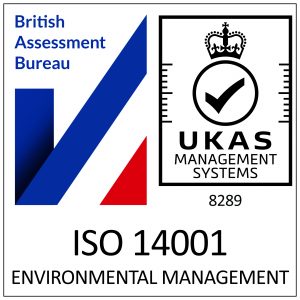Sicut believes passionately in sustainability and the environment and believes that it’s infrastructure products are truly sustainable. Not only can each Sicut composite tie (sleeper) make highly effective use of upto 90kg of waste plastic, which has hitherto either been sent off to the Far East, been deposited in landfills or ended up in our rivers and oceans, but it also substitutes for extremely unsustainable materials such as timber and concrete.
For example it is estimated that for every mile of railway track installed with hardwood ties (sleepers), more than 900 hardwood trees must be felled, often in South America or Africa, for just 15-20 years of use, compared to the 150 years these trees had taken to grow. With the impending ban on the use of creosote in Europe, the life cycle for timber tie (sleepers) is expected to fall significantly, further increasing the carbon footprint of such products. Compared to timber, Sicut estimates that for every km of Sicut Composite Tie (Sleeper) installed leads to savings of more than 186,000kg CO2e.
Sicut is aware of its wider environmental responsibilities and tries to limits its impact wherever possible; it minimises its use water in its production process, seeks to reduce energy use where practicable and recycles any production waste trough its unique open to closed loop process in which 100% of its products are also recyclable at the end of life. Sicut’s commitment to the environment and sustainability is reflect in its ISO 14001:2015 UKAS accredited certification.

“Truely Green”
Turning today’s waste into tomorrow’s infrastructure
